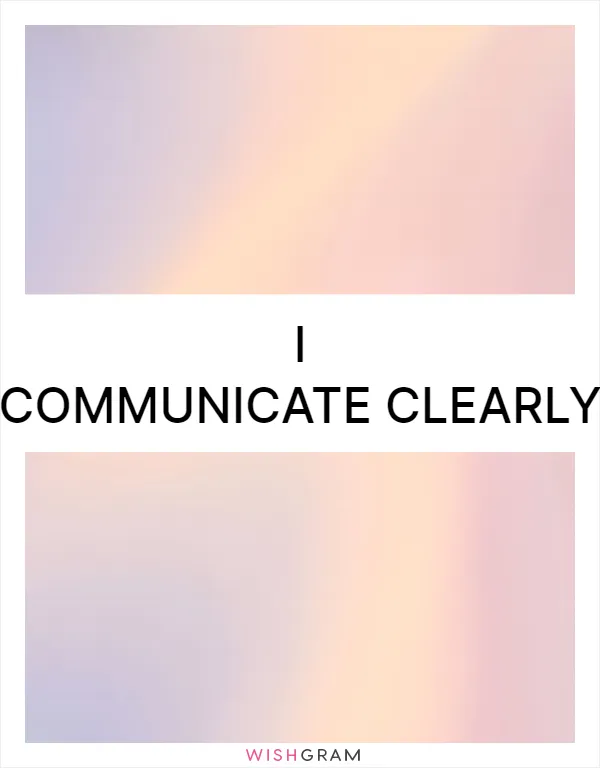I communicate clearly
Communication is a fundamental aspect of human interaction. It allows us to convey our thoughts, ideas, and emotions to others. However, effective communication goes beyond simply expressing ourselves; it also involves being understood by others. This is where the affirmation "I communicate clearly" comes into play.
When we affirm that we communicate clearly, we are setting an intention to express ourselves in a way that is easily understood by others. This affirmation reminds us to be mindful of our words, tone, and body language, ensuring that our message is conveyed accurately and effectively.
Clear communication begins with clarity of thought. Before expressing ourselves, it is important to organize our ideas and understand what we want to convey. Taking a moment to reflect on our thoughts allows us to articulate them in a concise and coherent manner, making it easier for others to comprehend our message.
In addition to clarity of thought, using simple and straightforward language is crucial for effective communication. Complex jargon or convoluted sentences can confuse the listener and hinder understanding. By using plain and simple language, we eliminate unnecessary barriers and ensure that our message is accessible to a wider audience.
Furthermore, being aware of our tone and body language is essential in communicating clearly. Our tone of voice and non-verbal cues can greatly influence how our message is received. Speaking in a calm and confident manner, maintaining eye contact, and using appropriate gestures can enhance the clarity of our communication and foster a positive connection with the listener.
Active listening is another vital component of clear communication. When engaging in a conversation, it is important to give our full attention to the speaker. This means avoiding distractions, such as checking our phones or thinking about our response while the other person is speaking. By actively listening, we demonstrate respect and understanding, which encourages open and effective communication.
Moreover, seeking clarification when needed is a sign of effective communication. If we are unsure about something or if the message is unclear, it is important to ask questions or request further explanation. This not only helps us better understand the information being conveyed but also shows our commitment to clear communication.
In the digital age, written communication has become increasingly prevalent. Whether it is through emails, text messages, or online platforms, the affirmation "I communicate clearly" remains relevant. When writing, it is important to be concise, organized, and use proper grammar and punctuation. Proofreading our messages before sending them ensures that our intended message is accurately conveyed.
Lastly, practicing empathy and understanding is crucial for clear communication. Recognizing that everyone has their own unique perspectives and experiences allows us to tailor our communication to the needs of the listener. By being empathetic, we can adapt our language and approach to ensure that our message is received and understood in the way we intended.
